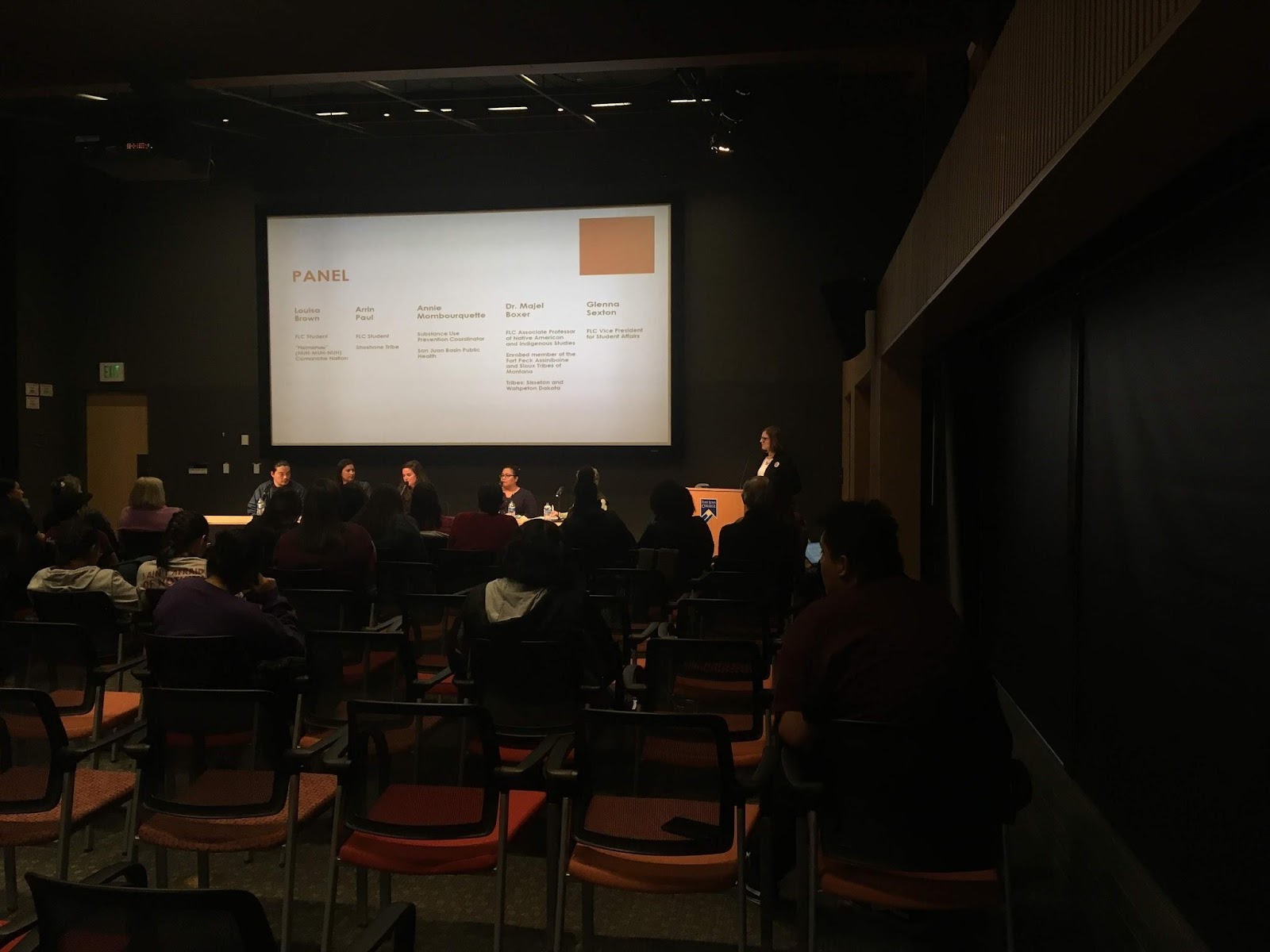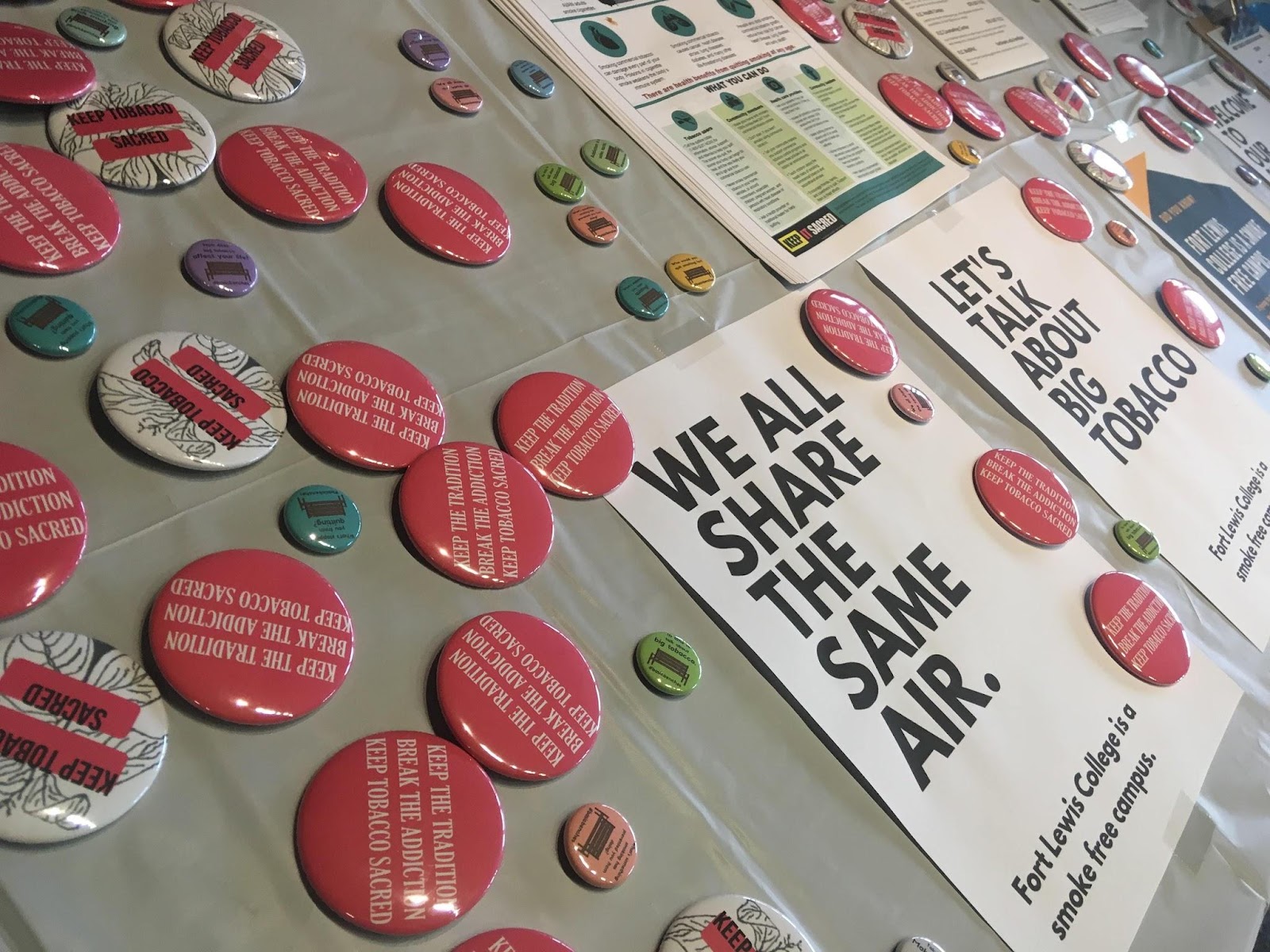
Panelists Arrin Paul, Louisa Brown, Annie Mombourquette, Dr. Majel Boxer, and Glenna Sexton discuss traditional tobacco in the Vallecito Room in the Student Union at Fort Lewis College. Photo by Taylor Hutchison
Following the executive order that condemned students from smoking or vaping at Fort Lewis College, students addressed the use of traditional tobacco with a screening of “Keep it Sacred” and a panel on April 2 in the Vallecito Room in the Student Union Building.
Sara Newman, assistant professor of health sciences, asked her public health communication and education students to focus on a community on campus and the effect of the smoking ban on that community.
Rexine Williams and her partners, Sheyenne Sangster and DeJay Yazzie, chose to focus on raising awareness of traditional tobacco use in Native American communities.
There is a large indigenous population at the college and it is important that they, and other students, know that the smoking ban does not include traditional tobacco, Williams said.
Williams wants indigenous students to feel comfortable when they use traditional tobacco, and for others to know that what those indigenous students are doing is for religious purposes, she said.
“My grandfather was a Navajo medicine man, or sometimes they say Dine medicine man, and he used a lot of traditional tobacco-natural plants and herbs-for his prayers,” Williams said.
Williams continues this tradition and uses traditional tobacco about once or twice a year, but other students may use traditional tobacco more often, she said.
Each tribe has a different relationship with tobacco, and the ingredients in traditional tobacco can vary from tribe to tribe. However, the ingredients typically include different types of plants, herbs and berries. Traditional tobacco may or may not contain nicotine.
Commercial tobacco, on the other hand, is manufactured to be sold for profit and includes ingredients that can lead to addiction, death and disease.
The short film “Keep it Sacred” was produced by Boys and Girls Club of the Southern Ute Indian Tribe. It follows a group of boys and girls as they learn about traditional tobacco.
After the screening, panelists Glenna Sexton, Annie Mombourquette, Majel Boxer, Louisa Brown and Arrin Paul lead a discussion about traditional tobacco.

WellPAC attended the event and provided flyers and buttons that both promoted the use of traditional tobacco and condemned the use of commercial tobacco, and even provided bags full of items like gum, lollipops, and toothpicks meant to help students quit smoking. Photo by Taylor Hutchison.
During the discussion, Mombourquette, the substance use prevention coordinator at San Juan Basin Public Health, said there are no known health risks of traditional tobacco use.
Also during the discussion, Sexton, vice president of student affairs, said that efforts to change the terminology of the smoking ban are being made.
After working with Newman and her students, Sexton hopes to change the terminology of the smoking ban and specify that commercial tobacco is what is meant by the executive order.
She also hopes to include a note in the smoking ban that traditional tobacco is allowed.
“As one of the first colleges to address traditional tobacco, we hope that Fort Lewis sets a high standard for how colleges can support the spiritual health of students,” Williams said. “Like any religious or spiritual practice on campus, the needs of native people are important and should be celebrated in the same way.”
Williams hopes that this event will become annual.